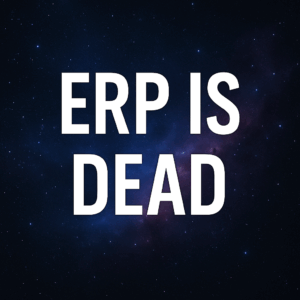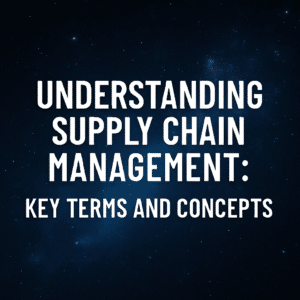It’s important to have employees at all levels of your organization involved in your ERP initiative. In a recent blog, we reported that employees dedicated to these initiatives have 30% greater turnover than employees not directly involved in an ERP project – which got a lot of reaction. In this blog, we’ll explore what can go wrong causing employees to wonder “what’s in it for me.”
Table of Contents
ToggleAn ERP implementation can be confusingly ambiguous
Chances are you may have some good project managers within your organization but recognize that an ERP initiative or digital transformation is a different animal. You also probably have resources that will help train employees on how to use a new system, but who trains the internal ERP team on how to execute on a myriad of decisions that will need to be made while building it? As projects run over on time and budget (and most do) frustrations grow. This can make for an uncomfortable environment.
It’s not uncommon for an internal IT member to take the lead or begin influencing decision making – knowledge being power. If team members just start going along with decisions vs. carefully debating and analyzing – things can start to go sideways. Let’s face it, it’s complicated to make decisions on actions like configuration vs. customization of software – someone might as well ask you the steps to rebuilding a failing auto transmission (and most of us aren’t mechanics).
While your internal team’s perspective is invaluable, you might be headed for trouble if you don’t get them the training and support they need from the start. Symptoms of not doing so can range from low confidence or insecurities (which many will attempt to hide), to frustration, to indifference, to letting others make the decisions. Some will quit their jobs to avoid what they may perceive as a nebulous assignment that is giving them little satisfaction while working longer hours.
Talk to us at Third Stage Consulting about how we train teams to navigate everything from politics to the Organizational Change Management (OCM) challenges of ERP initiatives. We also have some great ideas on how to incentivize and reward internal teams.

Process changes haven’t been fully ironed out
One of the areas employees can add value is in discussing and explaining current processes whether they are good, bad or nonexistent. Process mapping sessions also capture ideas and concerns. It would be inconceivable to implement a new system and not have significant process changes. Process change can come about for a variety of reasons but anticipate these:
- The new software will have preconfigured routines that are proven. They may not look like your current routines, but they work and should be seriously considered
- If employees are not given a vision of what your company’s future state will look like, some of the process changes won’t make any sense to them (think confusion or possible intimidation)
- Employees may describe processes that are working well, only to see them changed in the new system design. This is often because it is not being looked at it from a global view. What do you mean management will be able to see real-time updates of how many items I process per hour?
OCM is an important success factor in ERP initiatives. Some internal team members could feel deceived when you’ve asked their opinions about processes but decide to go in another direction. Setting realistic expectations and keeping open and crisp communication is equally important. You want to turn down the volume of the rumor mill. Keep in mind that while you’re asking employees their opinions about functionality and tasks, their minds could be focusing on different things:
- How will this impact my job; or will I still have a job?
- If I ignore this project, it too will go away as other projects at the company have in the past
- Will I be able to navigate and learn the new technology?
An effective OCM plan needs to be multi-pronged, detailed and should morph with the initiative. It’s not an easy environment to manage when you’re asking for employees’ involvement and input but may or may not use their recommendations. There are ways to have productive conversations around and about this, but many organizations skip this step because the project is running behind, and OCM can seem less important than keeping the project moving. Nothing could be further from the truth. To do so will only manifest itself in not so pretty ways down the line. Let Third Stage share some of our expertise with your team about constructing OCM plans that keep teams working cohesively while harnessing new technology.
Management interest appears to be waning
It’s not uncommon for our consultants to observe differences in perception (and happiness) from a company’s internal team members. This can be influenced by employees’ relationships with their direct supervisors. Employees are perceptive and will detect how management “in their part of the company” is reacting to the prospect of new technology. Everyone is a stakeholder in an ERP project and employees take notice of the demeanor and attitudes of the people in charge. Something as simple as the roll of the eyes can be viewed as negative or unsupportive.
We see examples of senior management retrenching to attend to the daily priorities of the business. While they “support” the project they often delegate all if not most of the decision making. They may become less available or “hallway conversations” begin to take the place of effective meetings. This can impact morale or confidence and make team members question their roles or value. For most internal team members this may be their first involvement in an ERP project, and there’s a good chance they may have not fully understood the difficulties they would encounter.
Some management teams may have not learned the important lesson that the internal project team needs to be a fulltime dedicated team. The “what’s in it for me” attitude (or sometimes exasperation) really starts to emerge when team members are expected to perform their daily job functions as well as be an integral effective member of the ERP team.

In Conclusion
This blog started out emphasizing the important role team members play within an ERP initiative. Educating and coaching them how best to be effective and happy team members is the challenge. Their responsibilities are great. In addition to technical and process decisions, they must represent the culture of the organization. This means placing importance on intuitive interfaces and routines for their fellow constituents when designing the new system. To not do so will hamper adoption in a variety of different ways. Yes, we’ve seen companies launch expensive new tech only to have employees refuse to use it or resist by using workarounds.
ERP project teams can begin to feel alienation or isolation for many of the reasons mentioned in this blog. Talk to us about how to form and maintain productive and satisfied ERP teams. That’s a conversation we’d love to have.





